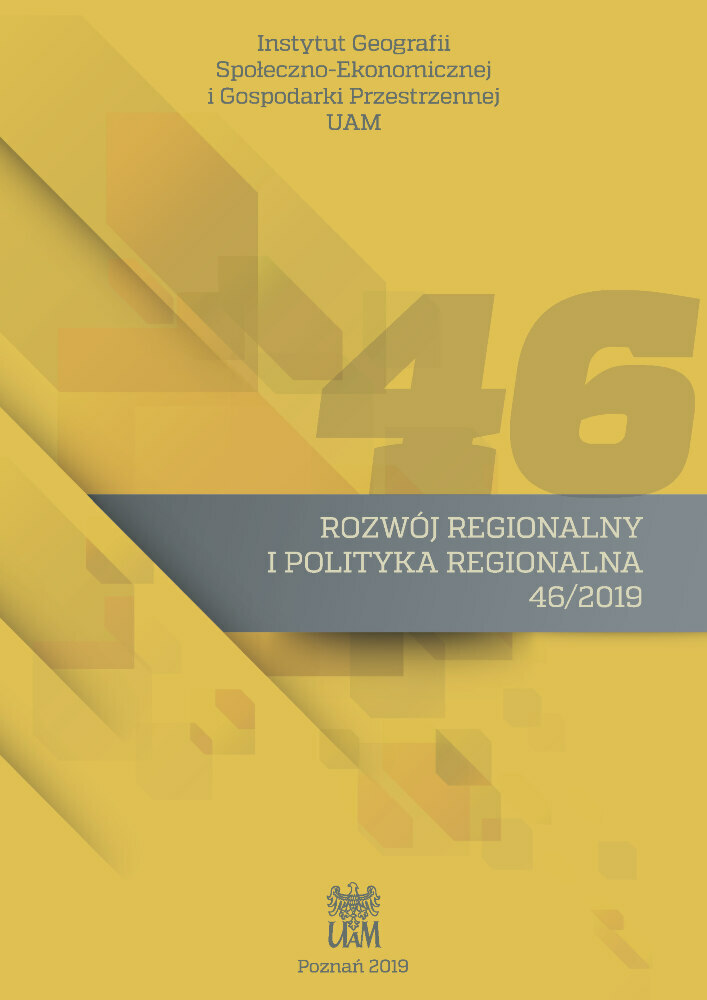Abstract
The main aim of this paper is to provoke continuous discussion on ethical issues related to conducting social research in geography. The main issues in this article are presented in form of literature review about ethics of research practice. The author first discusses general issues concerning the understanding of ethical standards in science and their codification. In second part of this paper author discuss examples of ethical dilemmas taking into account the specific of human geography and the dynamics resulting from the development of new technologies. Presented arguments provoke to conclusion that because of complexity of ethical issues there is no possibility to resolve them only by following set of codified rules or principles. The only way to conduct ethical research is through deeper reflection, continuous exchange of experience and discussion between researchers.
Funding
Projekty 2018/31/B/HS4/00059 oraz 2017/25/N/HS4/00018 finansowanych ze środków Narodowego Centrum Nauki w Krakowie.
References
Batorski D., Olcoń-Kubicka M. 2006. Prowadzenie badań przez Internet – podstawowe zagadnienia metodologiczne. Studia Socjologiczne, 3(182): 99–131.
Birch M., Miller T. 2005. Encouraging Participation: Ethics and Responsibilities. [W:] M. Mauthner, M. Birch, J. Jessop (red.), Ethics in Qualitative Research. SAGE Publications Ltd, London, Thousand Oaks, New Delhi, s. 91–106.
Clark S. 1991. Invisible Woman: Using Qualitative Research. New Zealand Journal of Geography, 92: 6–7.
de Laine M. 2000. Fieldwork, Participation and Practice: Ethics and Dilemmas in Qualitative Reseaarch. SAGE Publications Ltd, London, Thousand Oaks, New Delhi.
Denzin N.K. 1999. Cybertalk and the Method of Instances. [W:] S. Jones (red.), Doing Internet Research. SAGE Publications Ltd, London, s. 107–125.
Diener E., Crandall R. 1978. Ethics in Social and Behavioral Research. University of Chicago Press, Chicago.
Edwards R., Mauthner M. 2005. Ethics and feminist research: Theory and practice. [W:] M. Mauthner, M. Birch, J. Jessop, T. Miller (red.), Ethics in Qualitative Research. SAGE Publications Ltd, London, Thousand Oaks, New Delhi, s. 14–31.
Flicker S., Haans D., Skinner H. 2004. Ethical Dilemmas in Research on Internet Communities. Qualitative Health Research, 14(1): 124–134.
Flowerdew R., Martin D. 2005. Methods in human geography: A guide for students doing a research project. Pearson Education Limited, Harlow.
Galewicz W. 2009. O etyce badań naukowych. Diametros, 19: 48–57.
Hammersley M. 1999. Some reflections on the current state of qualitative research. Research Intelligence, 70: 16–18.
Hammersley M., Traianou A. 2012. Ethics in Qualitative Research: Controversies and Contexts. SAGE Publications Ltd, Los Angeles, London, New Delhi, Singapore, Washington DC.
Hay I. 1998. Making Moral Imaginations. Research Ethics, Pedagogy, and Professional Human Geography. Ethics, Place & Environment, 1(1): 55–75.
Hay I. (red.). 2000. Qualitative Research Methods in Human Geography. Oxford University Press, Melbourne.
Hay I. 2010. Ethical Practice in Geographical Research. [W:] N. Clifford, S. French, G. Valentine (red.), Key Methods in Geography. SAGE Publications Ltd., Los Angeles, London, New Delhi, Singapore, Washington DC, s. 35–48.
Hewson C., Yule P., Laurent D., Vogel C. 2003. Internet Research Methods: a practical guide for the social and behavioural sciences. SAGE Publications Ltd, London, Thousand Oaks, New Delhi.
Jones R.A. 1994. The Ethics of Research in Cyberspace. Internet Research, 4(3): 30–35.
Kodeks Etyki Socjologa uchwalony przez Walne Zgromadzenie Delegatów Polskiego Towarzystwa Socjologicznego dnia 25 marca 2012 r.
Kotus J., Rzeszewski M., Bajerski A. 2015. Przyjezdni w strukturach miasta – miasto wobec przyjezdnych: studenci i turyści w mieście w kontekście koncepcji city users. Bogucki Wydawnictwo Naukowe, Poznań.
Mauthner M., Birch M., Jessop J., Miller T. 2005. Ethics in Qualitative Research. SAGE Publications Ltd, London, Thousand Oaks, New Delhi.
Miller T., Bell L. 2005. Consenting to what? Issues of Access, Gate-keeping and “Informed” Consent. [W:] M. Mauthner, M. Birch, J. Jessop, T. Miller (red.), Ethics in Qualitative Research. SAGE Publications Ltd, London, Thousand Oaks, New Delhi, s. 53–69.
Mitchell B., Draper D. 1982. Relevance and Ethics in Geography. Longman, New York.
Mitchell B., Draper D. 1983. Ethics in geographical research. Professional Geographer, 35(1): 9–17.
Morrow V., Richards M. 1996. The Ethics of Social Research with Children: An Overview. Children & Society, 10(2): 90–105.
Niedbalski J. 2017. Dylematy etyczne i problemy metodyczne warsztatu badacza na przykładzie badań prowadzonych w środowisku osób z niepełnosprawnością intelektualną oraz niepełnosprawnością fizyczną. Studia Humanistyczne AGH, 15(4): 35–51.
Polskie Towarzystwo Socjologiczne. Kodeks Etyki Socjologa.
Proctor J.D. 1998. Ethics in geography: geographical giving moral imagination form to the. Area, 30(1): 8–18.
Radzimski A., Gadziński J. 2018. Travel Behaviour in a Post-Socialist City. European Spatial Research and Policy, 26(1): 43–60.
Ratzan R.M. 1980. “Being Old Makes You Different”: The Ethics of Research with Elderly Subjects. The Hastings Center Report, 10(5): 32–42.
Smith D.M. 1997. Geography and ethics: A moral turn? Progress in Human Geography, 21(4): 583– 590.
Sowada T. 2019. Ruchy miejskie w działaniu. Oblicza partycypacji. Bogucki Wydawnictwo Naukowe, Poznań.
Waskul D. 1996. Considering the Electronic Participant: Some Polemical Observations on the Ethics of On-Line Research. The Information Society, 12(2): 129–140.
Winchester H.P.M. 1996. Ethical issues in interviewing as a research method in human geography. Australian Geographer, 27(1): 117–131.
License
Copyright
© 2019 WGSEiGP, Uniwersytet im. Adama Mickiewicza w Poznaniu
OPEN ACCESS
